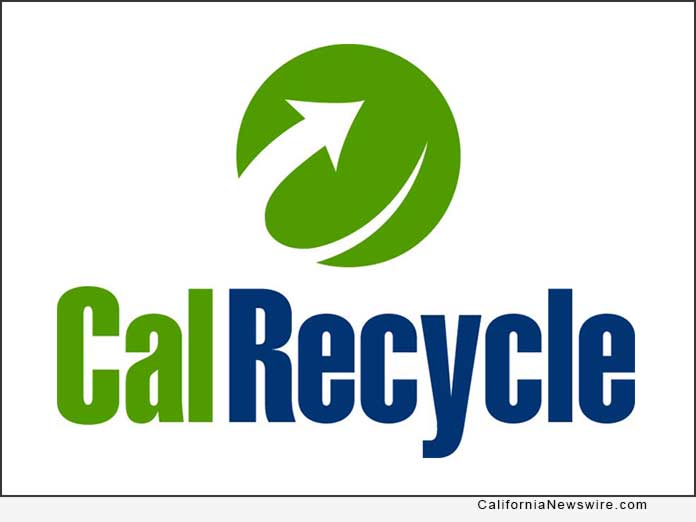SACRAMENTO, Calif. /California Newswire/ — Demand for food assistance has more than doubled during the COVID-19 pandemic, with nearly 1 in 4 Californians without enough to eat. Sheltering-in-place makes it difficult to take part in traditional in-person holiday food drives and fundraising events. But this year it’s more important than ever to help people struggling to feed their families during the holidays, according to the California Department of Resources Recycling and Recovery (CalRecycle) and its partner the California Association of Food Banks (CAFB).
“With layoffs and distance learning, California families are facing hunger like they never have before,” CAFB Chief Executive Officer Stacia Levenfeld said. “In this season of giving, the California Association of Food Banks is proud to join CalRecycle to share practical steps we can all take to make a real difference together.”

Tis the Season to Take Action on Hunger and Climate Change
More Californians than ever struggle to feed their families this year. But as 23 percent of Californians don’t know where their next meal will come from, California landfills more than 11 billion pounds of food each year. When food waste and other organic materials decompose in landfills, they emit methane, a short-lived climate super pollutant 84 times more potent than carbon dioxide and a major contributor to climate change.

Watch this video on YouTube.
For those who want to help Californians hit hardest by the COVID-19 pandemic this holiday season, the California Association of Food Banks and CalRecycle recommend the following actions:
- Donate: A $1 dollar donation to food banks helps provide 5 meals to struggling California families. Find your nearest hunger relief organization online.
- Volunteer: A few hours of your time will help food banks collect, store, transport and distribute food to your neighbors in need, while also helping your community divert good food away from landfills to fight climate change. Contact your local hunger relief organization about safe, socially distanced volunteer opportunities in your community.
- Share the message: Spread the word about supporting local food recovery groups to help those hardest hit by the COVID-19 economic crisis.
- Check out CalRecycle’s food waste prevention page to learn how reducing food waste through support of local hunger relief efforts can reduce climate super pollutants.
- Share information with family and friends on social media.
“California food banks do so much good for communities by supporting those in need and providing fresh food to people who need it,” CalRecycle Acting Director Ken DaRosa said. “Reducing food waste by supporting local hunger relief organizations is something every Californian can do right now to protect our planet and help others this holiday season.”
Partnership to Feed Californians and Fight Climate Change
The California Association of Food Banks (CAFB) is an anti-hunger organization representing more than 40 food banks throughout the state. Together, they are responding to this unprecedented hunger crisis and feeding our communities through a vast network of food pantries, soup kitchens, schools, churches, and numerous other community organizations.
- Learn more about CAFB’s hunger relief efforts, including the Farm to Family program that works with farmers, ranchers, packers, and distributors to get excess produce from fields to food banks throughout the state by going to org.
CalRecycle proudly supports food recovery groups as they fight food insecurity. As a department under the California Environmental Protection Agency, CalRecycle has a mission to help Californians waste less and reuse and recycle more to protect public health and the environment.
- Food and other organic waste makes up more than half of the material Californians put in the trash each year, resulting in landfill methane emissions that accelerate climate change.
- Grants from CalRecycle to food recovery organizations have helped turn still fresh, surplus food from businesses and farms into 86 million meals that feed Californians in need.
CalRecycle is helping cities and counties implement a new law to reduce organic waste and the super pollutants it creates in landfills. In addition to statewide organic waste collection, starting in January of 2022 the law will require large food businesses like supermarkets and food wholesalers to donate still fresh food instead of throwing it in the trash.
- Learn more about CalRecycle’s efforts to implement California’s Short-Lived Climate Pollutant Reduction Law (SB 1383, Lara, Chapter 395, Statutes of 2016), which requires:
- 75 percent statewide reduction in organic waste disposal by 2025 and
- Food businesses to redirect currently disposed, edible food to food recovery organizations.
At a Glance: How SB 1383 Supports a Green California for All
California’s Short Lived Climate Pollutant Reduction Law builds upon the state’s commitment to reduce pollution and greenhouse gas emissions statewide, improve human health, and create clean jobs that support resilient local economies.
Starting in 2022, California cities and counties must provide organics recycling collection to all residents and businesses. SB 1383 also establishes a statewide edible food recovery target that requires grocery stores, food wholesalers, restaurants, schools, and other food businesses to recover the maximum amount of their edible food they previously landfilled. No other state or country has set food rescue requirements this high.
Originally published on CaliforniaNewswire.com — California Association of Food Banks and CalRecycle recommend practical steps every Californian can take right now to help hungry families
